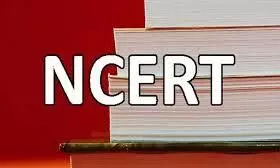
NCERT textbook now refers to Harappan Society as 'Sindhu-Sarasvati Civilisation'
text_fieldsThe National Council of Educational Research and Training (NCERT) has revised its curriculum in accordance with the National Education Policy (NEP) 2020, resulting in changes to the Class 6 Social Science textbook.
The new edition, titled "Exploring Society: India and Beyond," refers to the Harappan Society as the 'Sindhu-Sarasvati Civilisation.'
According to Unit 6 of the textbook, "The Beginnings of Indian Civilisation," the Harappan Society has been known by various names including 'Indus,' 'Harappan,' 'Indus-Sarasvati,' and 'Sindhu-Sarasvati' Civilisation. The textbook states, "Archaeologists gave this civilisation several names... We will use all these terms. Its inhabitants are called 'Harappans.' It is one of the oldest civilisations in the world."
The unit also highlights the Sarasvati River, known today as the 'Ghaggar' in India and the 'Hakra' in Pakistan, mentioning its reference in the 'Rig Veda.'
The NCERT, which operates under the Ministry of Education and is responsible for developing educational materials, has undertaken this curriculum revision as part of an effort to align with NEP 2020. This update is part of an ongoing global and annual review process to ensure the content remains relevant and up-to-date, as stated by NCERT Director Dinesh Prasad Saklani in June.
Saklani emphasized that the revisions are based on recommendations from subject and pedagogy experts, with no interference from higher officials. He explained that some changes were necessary to update the information, while others aimed to reduce the content load on students, particularly in light of the COVID-19 pandemic and to eliminate content duplication.






















